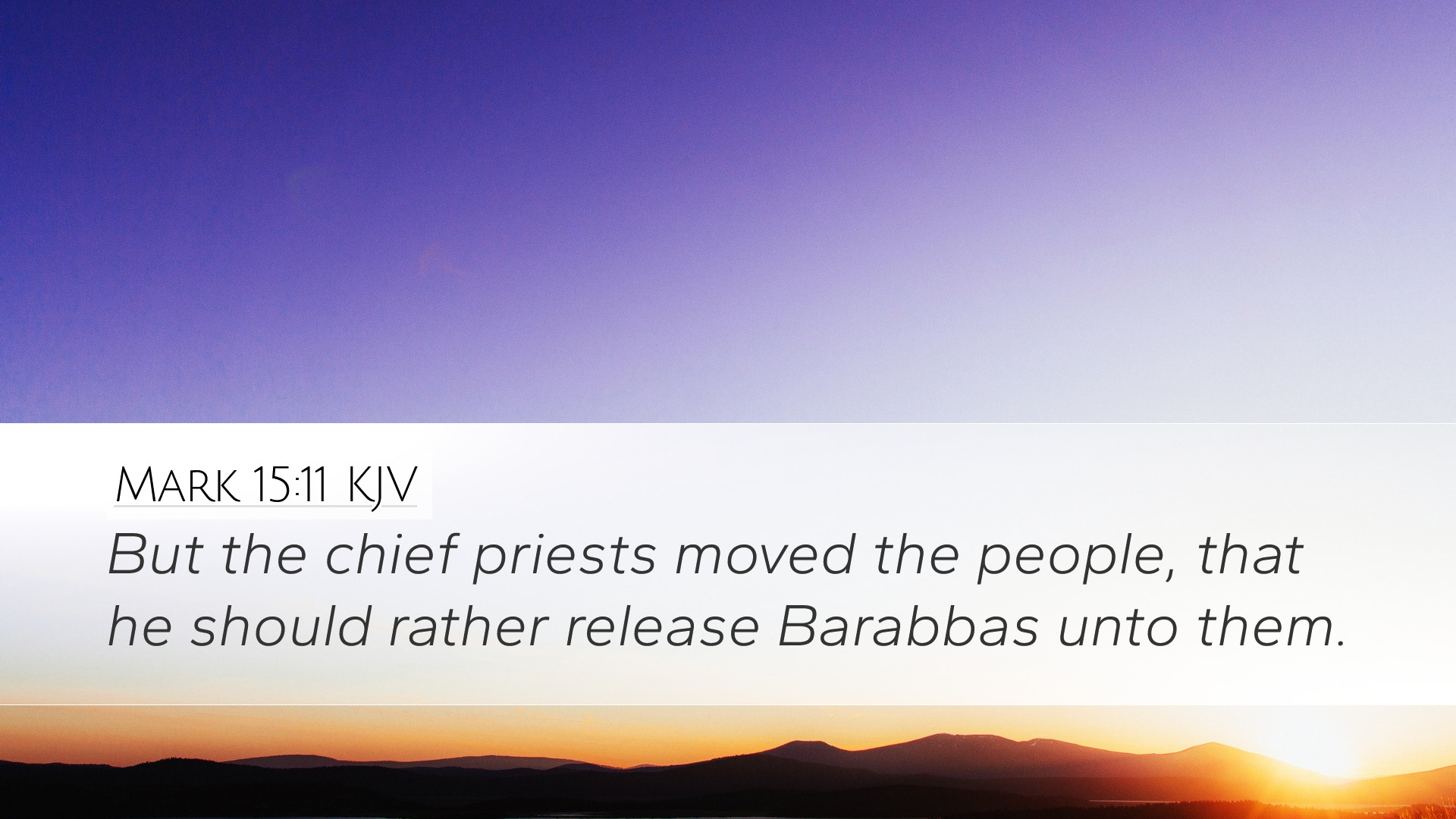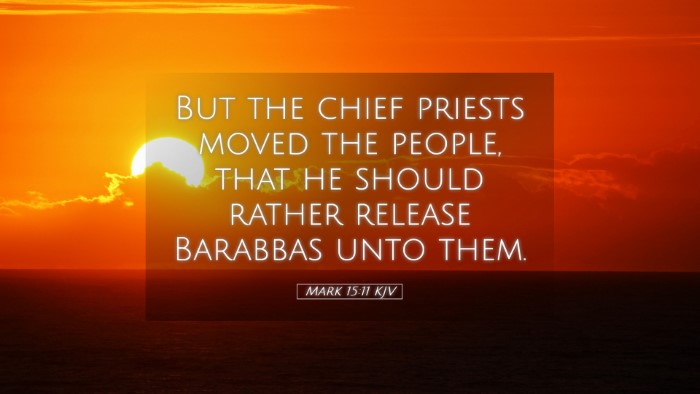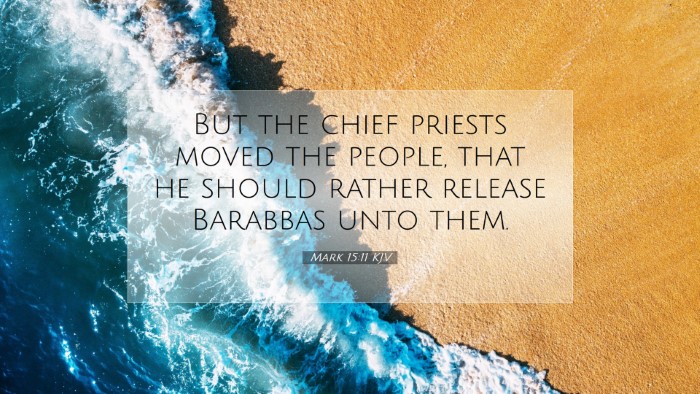Commentary on Mark 15:11
Verse Context:
Mark 15:11 states: "But the chief priests stirred up the crowd to have him release Barabbas instead." This moment occurs in the context of Jesus’ trial, where the religious leaders manipulated public opinion against Him, demonstrating the profound rejection of Jesus by the very people He came to save.
Exposition of Mark 15:11
This verse reveals the theological and sociopolitical dynamics at play during the trial of Jesus. It underscores the conflict between Jesus, the Messiah, and the existing religious authorities, represented by the chief priests.
The Chief Priests' Influence
Matthew Henry's Commentary emphasizes that the chief priests, as the religious leaders, wielded significant control over the populace. They instigated the crowd to choose Barabbas, a notorious criminal, over Jesus, showcasing their manipulation and the darkness of their hearts. It exemplifies a broader theme of rejecting God’s chosen servant for a figure of rebellion and lawlessness, symbolizing humanity's sinfulness.
The Role of the Crowd
Albert Barnes' Notes on the New Testament points out the responsibility of the crowd in this choice. The leaders did not act alone; they stirred the sentiments of the people, which serves as a reminder of how collective influence can lead to actions that betray moral and divine principles. This moment challenges us to consider our own inclinations to follow the majority, especially in spiritual matters.
Barabbas as a Symbol
Adam Clarke's Commentary elaborates on the character of Barabbas, whose name means "son of the father." There’s a stark irony in this choice – the true Son of the Father, Jesus, is rejected, while a symbolic 'son of the father' who embodies rebellion is chosen. Clarke suggests that this depicts a larger truth about human depravity and the tendency to choose sin over righteousness.
Theological Reflections
The decision to free Barabbas rather than Jesus holds rich theological implications. It presents a powerful contrast between justice and mercy, sin and salvation.
- Human Choice: The verse illustrates the ominous nature of human choice, particularly when influenced by authority. It raises questions regarding our priorities and allegiances.
- Rejection of Christ: Jesus’ rejection reflects the heart of mankind, which often gravitates towards worldly desires rather than divine truth. This aspect is vital for understanding sin's nature.
- God’s Sovereignty: Despite the evil intentions behind these actions, God’s plan for salvation through the crucifixion of Jesus continues unabated. This verse reminds us that God can use even the darkest human decisions to fulfill His purposes.
Pastoral Insights
For pastors and church leaders, Mark 15:11 serves as a poignant reminder of the potential for manipulation and misguided zeal within the church. It calls for vigilance against the pressures of public opinion and the necessity of steadfastness in truth.
- Discernment: Leaders must exercise discernment in their teachings and influences, ensuring their guidance aligns with Biblical truth rather than societal trends.
- Compassion for the Lost: Understanding the crowd’s choice deepens the call for compassion towards those who do not know Christ, reminding us of the need for evangelism and outreach.
- Modeling Christ: This rejection should motivate believers to model Christ, embracing humility and sacrificial love, contrary to the world’s expectations.
Conclusion
Mark 15:11 encapsulates the essence of human nature in rebellion against God and the incredible grace offered in Christ. It serves as a cautionary tale regarding leadership, decision-making, and the nature of collective influences. As we reflect on this passage, may we seek to understand our own hearts and the cultural dynamics around us while furthering God’s kingdom with clarity and purpose.


